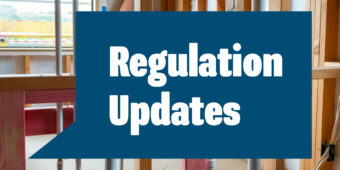Public liability insurance
15 Mar 2018, Insurance, Prove Your Know How

Many tradies worry more about liability than a car accident or theft, yet they are less likely to have adequate insurance to cover it. This can be problematic, as in many cases the actual costs of a liability claim can be greater!
Public liability insurance is one of the most important policies that a trade professional should have. It is intended to protect you from the cost of accidentally damaging other people’s property and – in some cases – causing them injury.
This article looks at some of the most important definitions and exclusions in a public liability policy.
Policy definitions
Damage/property damage
To be a claim, generally there must first be accidental damage to property. This can also include the loss of property that isn’t actually damaged, and the loss of use of property.
Event/occurrence
To meet the criteria for this type of claim, the accidental damage must result from a single event and occur within the policy period. The event must be unforeseen and unintended from the standpoint of the policy holder.
Faulty/defective workmanship
Unfortunately, there is no accepted insurance definition of faulty workmanship, which is why it can be such a contentious issue. Was damage caused accidentally or by poor workmanship?
Your view might be quite different from that of your insurance company. If your policy does not include cover for faulty workmanship, you could find your claim is declined.
Consequential loss/resultant damage
The policy can also cover the indirect costs of damage you cause. For example, the cost of lost sales due to a power failure if you cut through a power cable, or the subsequent water damage to walls and carpets caused by a leaky pipe.
Insured’s products
Your own products are not covered by the policy. This can include anything you have constructed once it is no longer in your possession or control. It’s important you have a policy that is tailored for builders, otherwise damage to a house you’ve worked in could be excluded from your liability cover.
Policy exclusions
Asbestos
Asbestos-related legal action is amongst the longest and most expensive in history. Insurers are unwilling to take on the cost of this risk and have excluded any loss related to asbestos. Asbestos exposure could be an increased risk in Christchurch reconstruction work.
Vehicles, boats and aircraft
Claims for damage from owning, working on or using vehicles, watercraft (although smaller ones may still be covered) and aircraft (including products incorporated into aircraft) are not covered.
Damage caused by your car, van, ute and trailers is excluded – these should be covered by a separate commercial vehicle insurance policy.
Pollution
The cost of pollution, including air, water and ground pollution, and the associated clean-up costs are excluded from most policies. However, some will still cover a specific event if it is sudden and unintended.
Employee injury
Injury to an employee that arises out of their work for you is excluded. The ACC scheme is intended to cover this.
Building defects, mould, rot, gradual deterioration and water penetration
As a result of the leaky homes crisis, many policies from general insurers now exclude cover for the effects of water penetrating a building envelope. As the multi-billion dollar cost of the crisis became clear, insurers decided that the cost of future leaky building claims was too high for them to bear and amended policies to exclude it.
Separate policies that protect tradies from liability for financial loss, such as Builtin’s E&O Indemnity, are available. Leaks from internal pipes and water systems are still generally covered by public liability insurance.
Errors in professional advice
You are generally not covered for damage that results from poor professional advice if you’ve charged for it.
As an expert, your clients are entitled to rely on what you say and, if you get it wrong, they can hold you liable for the cost of this mistake.
If the advice was given for free, then you may still be covered under the standard policy wording.
Defective design
Costs arising from a defective design or specification are excluded from public liability cover. You should be wary of doing any design, unless you have separate professional indemnity insurance that specifically covers this.
Your products, materials and the property you’re working on
Public liability insurance is intended to cover the cost of damage to other people’s property. This means products that you own, supply, install or construct are excluded under most policies. This becomes tricky for trade professionals, because of the way insurers define ‘your products’.
Along with the obvious, some definitions may also include any property that you have been, or are, working on. When it comes to claims from builders, the house you’re working on has often been interpreted as ‘your product’, and therefore is not covered because of this exclusion.
However, some policies make it clear that buildings, or separate components of a property, will still be covered. The definition of ‘your products’ is one of the most important aspects of your policy, and we strongly recommend you clarify this with your insurer and switch to a policy with a more trade-friendly definition if necessary.
Defective/faulty workmanship
Some polices won’t cover the cost of fixing any workmanship that causes damage. Others exclude cover for faulty workmanship only if it results in water penetration of the building envelope.
However, damage that occurs as a result of faulty workmanship may still be covered. Some policies now allow you to add cover for your liability for faulty workmanship.
The issue of faulty workmanship is one of the trickiest areas of liability for trade professionals. You should make sure that your policy covers this.
Loss of use
The policy may not cover you if a client can’t get into their house (or use any other property) because of a delay or product failure that you’re responsible for. They may hold you liable for extra rental, hotel and travel costs, but these can’t be claimed on your policy.
Property in your care, custody or control
Any claim related to any property that is in your physical care or that you have hired is excluded.
Some exclusions, such as the last three above, can be added back in as extensions to your policy, so it’s important that you check what your own policy does and doesn’t cover.
PLEASE NOTE: This article clarifies some of the common definitions and exclusions contained within most public/general liability policies available from major insurers in New Zealand. The specific wording from different insurers will vary and you should seek the advice of an insurance professional if necessary. Insurers will interpret and apply their own policy wording depending on the specific circumstances of each individual claim, and they’re all different. This article is a guide only and should not be relied upon as legal advice.
Register to earn LBP Points Sign in
3 Comments
Leave a Reply
You must be logged in to post a comment.




Good Quiz
Good
done